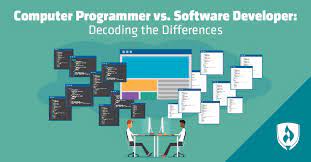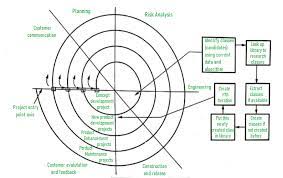Programming and Software Development: Empowering Innovation and Efficiency
In today’s rapidly advancing technological landscape, programming and software development have become integral to the success of businesses and organizations across various industries. From smartphones to smart homes, from e-commerce platforms to artificial intelligence systems, programming is the language that brings ideas to life and powers innovation.
At its core, programming is the art of instructing computers to perform specific tasks through a set of carefully crafted instructions. These instructions, known as code, are written in various programming languages such as Python, Java, C++, or JavaScript. Software development, on the other hand, encompasses the entire process of creating software applications or systems – from designing and coding to testing and deployment.
The impact of programming and software development is far-reaching. It enables businesses to streamline their operations by automating repetitive tasks, reducing human error, and improving overall efficiency. It empowers individuals to create new tools and solutions that solve problems and improve people’s lives. It fuels technological advancements in fields like artificial intelligence, machine learning, data analysis, virtual reality, and more.
One of the key advantages of programming is its versatility. It can be applied across diverse domains – finance, healthcare, education, entertainment – you name it! Whether it’s developing a mobile app for seamless user experiences or designing complex algorithms for data analysis in scientific research, programming provides endless possibilities for problem-solving.
However, becoming a skilled programmer requires dedication and continuous learning. The field is ever-evolving with new languages emerging regularly along with updates to existing ones. Programmers must stay up-to-date with industry trends by attending conferences, participating in online forums or communities like Stack Overflow or GitHub repositories.
Collaboration also plays a vital role in software development. Teams work together using version control systems like Git to manage code changes efficiently while ensuring seamless integration between different developers’ contributions. This collaborative approach fosters creativity while maintaining code quality through peer reviews and knowledge sharing.
Moreover, programming is not just about writing code. It involves critical thinking, problem-solving, and the ability to break down complex tasks into smaller, manageable steps. It requires attention to detail and a strong focus on efficiency and optimization. A well-designed and well-implemented software solution can have a significant impact on productivity, user satisfaction, and business success.
In conclusion, programming and software development are at the forefront of technological innovation. They empower individuals and organizations to create solutions that drive progress across industries. Whether you’re a seasoned developer or just starting your journey in programming, embracing this field opens up a world of opportunities to shape the future through code. So let’s embrace the power of programming and unlock our potential for innovation and efficiency!
Common Questions About Programming and Software Development
- What is program and software development?
- What is the role of programming in software development?
- Is software development the same as programming?
What is program and software development?
Program and software development refer to the process of creating, designing, implementing, and maintaining computer programs or software applications. It involves a systematic approach to building software solutions that meet specific requirements and solve particular problems.
A program can be thought of as a set of instructions that tell a computer what tasks to perform. These instructions are written in programming languages such as Java, Python, C++, or JavaScript. Programmers use these languages to create code that computers can understand and execute.
Software development encompasses the entire lifecycle of creating software applications. It starts with gathering requirements from stakeholders, analyzing user needs, and designing the architecture and structure of the software. Then comes the coding phase where programmers write the actual code to implement the desired functionality. Testing is an essential part of software development to ensure that the application works as intended and meets quality standards. Once testing is complete, deployment involves packaging the software for distribution or installation on users’ devices.
Throughout the development process, collaboration among team members is crucial. This includes project managers, designers, developers, testers, and other stakeholders who work together to ensure successful delivery of the software solution. Version control systems like Git help manage code changes across team members efficiently.
Software development is not a one-time event but rather an ongoing process. It involves maintenance and updates to keep up with changing requirements or address any issues that may arise after deployment. Continuous improvement is essential to enhance functionality, security, performance, and user experience.
Program and software development have become increasingly important in today’s digital world as businesses rely on technology for various operations. From mobile apps to web applications, from enterprise systems to embedded systems – software development plays a vital role in enabling innovation and driving efficiency across industries.
In summary, program and software development involve creating computer programs or applications through a systematic process that includes analysis, design, coding, testing, deployment, maintenance, and continuous improvement. It requires expertise in programming languages along with collaboration among team members to deliver high-quality software solutions that meet user needs and solve real-world problems.
What is the role of programming in software development?
Programming plays a crucial role in software development as it is the primary means of instructing computers to perform specific tasks and creating functional software applications. Here are some key roles programming serves in the software development process:
- Implementation of Functional Requirements: Programming allows developers to translate functional requirements into code. By writing instructions in a programming language, developers can create the logic and algorithms necessary for the software to perform desired functions.
- Creating Algorithms and Data Structures: Programming enables developers to design and implement efficient algorithms and data structures that optimize the performance of software applications. This includes tasks such as sorting data, searching for information, or processing large amounts of data.
- Defining User Interfaces: Through programming, developers can create user interfaces (UI) that allow users to interact with the software application. This involves designing buttons, menus, forms, and other graphical elements that enable users to input data and receive outputs.
- Handling Data Management: Programming is essential for managing data within a software application. It involves tasks such as storing, retrieving, updating, and deleting data from databases or other storage systems.
- Debugging and Troubleshooting: When issues or errors arise in software applications, programming skills are crucial for debugging and troubleshooting. Developers need to analyze code, identify problems, and make necessary corrections to ensure smooth functionality.
- Integration with External Systems: Many software applications need to interact with external systems or APIs (Application Programming Interfaces). Programming facilitates this integration by enabling communication between different systems through standardized protocols.
- Testing and Quality Assurance: Programming is instrumental in writing test cases and automated tests to verify that the software functions as intended. It helps ensure that the developed code meets quality standards through rigorous testing processes.
- Maintenance and Updates: As technology evolves or business requirements change over time, programming skills are vital for maintaining existing software applications or implementing updates. This includes modifying code, fixing bugs, enhancing features, or adapting the software to new environments.
Overall, programming is the backbone of software development, enabling developers to transform ideas and requirements into functional software applications. It provides the tools and techniques necessary for creating efficient algorithms, user-friendly interfaces, data management systems, and robust software solutions that meet the needs of users and businesses alike.
Is software development the same as programming?
While software development and programming are closely related, they are not exactly the same thing.
Programming refers to the act of writing code in a specific programming language to instruct computers to perform tasks. It involves creating algorithms, implementing logic, and translating ideas into executable instructions. Programmers write code to solve specific problems or achieve desired outcomes.
On the other hand, software development is a broader process that encompasses all activities involved in creating software applications or systems. It includes not only programming but also other stages such as requirements gathering, system design, testing, documentation, and maintenance. Software development involves the entire lifecycle of a software project from conception to deployment and ongoing support.
In simpler terms, programming is a subset of software development. It is one of the key components within the larger process of developing software applications. Programmers write code as part of the overall software development process.
Software development requires a multidisciplinary approach that goes beyond just writing code. It involves understanding user needs, designing user interfaces, architecting systems, ensuring quality through testing and debugging, managing databases, and more. While programmers play a crucial role in developing software by writing code, they are just one piece of the puzzle within the broader scope of software development.
In summary, programming focuses on writing code using specific languages to solve problems or perform tasks. Software development encompasses a wider range of activities beyond programming and involves all stages of creating software applications or systems.



